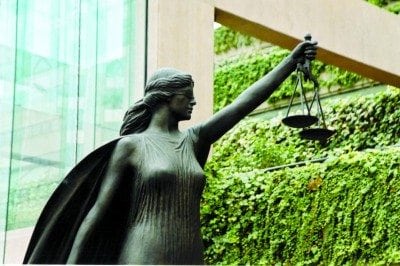THE Court of Appeal of Alberta released its judgement in UAlberta Pro-Life v Governors of the University of Alberta, 2020 ABCA 1, on Monday, confirming that the Canadian Charter of Rights and Freedoms applies to the exercise of freedom of expression by students on university campuses. The Court of Appeal found that it was unreasonable for the University of Alberta to impose an estimated $17,500 security fee on student group UAlberta Pro-Life as a prerequisite for holding an event to communicate with their fellow students on campus.
The BC Civil Liberties Association intervened in the case to argue that where universities charge exorbitant security fees to host unpopular or controversial speakers or events, they are curtailing the right to freedom of expression by effectively closing an otherwise open forum. The BCCLA’s argument is available here.
Emily Lapper, Senior Counsel (Litigation) for the BCCLA, said: “The BC Civil Liberties Association remains concerned about threats to freedom of expression on university campuses and the growing practice of charging security fees to host contentious speakers or events. Today’s decision from the Court of Appeal of Alberta confirms that universities should not be Charter-free zones. Security fees are not content-neutral; in charging security fees to student groups, the university is not merely allocating physical space, it is regulating the exchange of ideas that lies at the heart of the pursuit of a higher education. The BCCLA has a long history of pro-choice advocacy and action; however, we also stand strongly for the right of students to express themselves freely on campus and believe that prohibitive security fees are not an appropriate mechanism for university administrations to regulate campus speech. The BCCLA is delighted that the Court of Appeal of Alberta has found the university’s decision to impose a security fee to be unreasonable in this case.”
The BCCLA is represented in this case by Nathan J. Whitling of Liberty Law.













